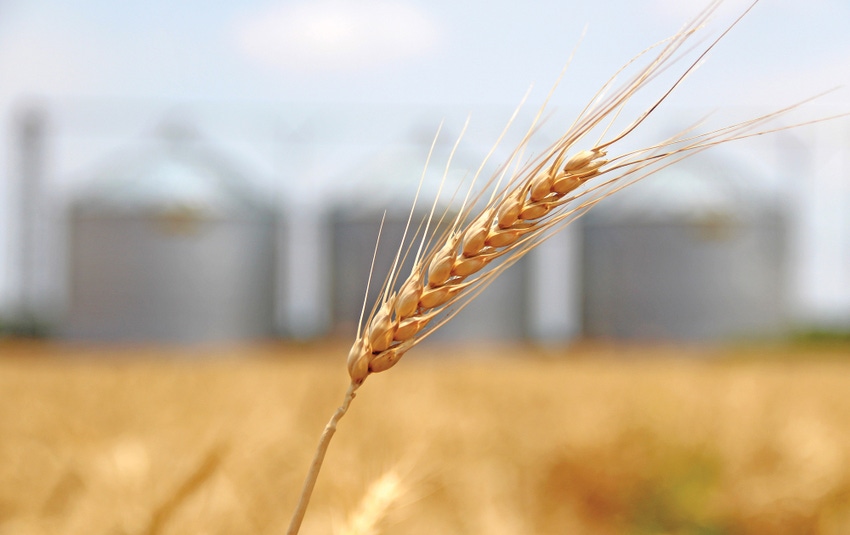June 25, 2013

Producers are bringing in Mississippi’s amber waves of grain later than usual, but sunny weather has allowed them to make strong progress on the winter wheat harvest during the last few weeks.
Wet conditions that began in February and cooler-than-normal conditions in March, April and most of May delayed the crop’s maturity.
Erick Larson, small grains agronomist with the Mississippi State University Extension Service, said the prolonged spring may have helped farmers with the timing of their management inputs, but now they are rushing to complete the wheat harvest.
“Farmers have a backlog of tasks to catch up on,” Larson said. “Our spring was backed up so much that many are busy with management practices on other crops. Some wheat may not be harvested as quickly as I wish it could be.”
The U.S. Department of Agriculture’s Crop Progress and Condition Report for the week ending June 16 estimated that producers harvested more than 45 percent of the winter wheat crop that week. The crop was 56 percent harvested for the season, down from the five-year average of 90 percent.
Letting wheat sit in the field can be risky, especially with the scattered showers popping up daily across the state. Unlike other grains, wheat is very exposed to the elements, the grains are relatively small and the heads are fragile.
“If wheat is rained on when it’s mature, the quality of the grain can quickly deteriorate,” Larson said. “Producers with fields where harvest is delayed risk losing test weight and general grain quality.”
Rain and wind can also cause lodging and shattering, which result in harvest losses.
Though the harvest is behind schedule, yields are better than expected. Mississippi’s five-year average is 56 bushels per acre.
“Our farmers have a good chance to wrap up the harvest this week since we’re having pretty weather,” said Lester Stephens, Extension agronomic crops agent in Washington County. “Yields have been anywhere from 20 bushels per acre to the upper 80s. We hope we can get our usual average of around 60 bushels per acre. We were wet for so long, many growers feel fortunate to end up with such good yields.”
Brian Williams, an agricultural economist with MSU’s Extension Service, said prices took a hit last week with the news of better yields.
“Prices have been struggling since the first part of June, and the decline is somewhat indicative of the better-than-expected yields being built into the market,” he said. “July wheat futures have been trading in the $6.80 to $7 per bushel range, with prices in Mississippi ranging from $6.59 to $6.81 per bushel at most locations.”
Feed demand has been a major factor in keeping wheat prices strong.
“With corn prices remaining strong throughout the winter, wheat has been an attractive alternative,” Williams said. “Wheat exports have been strong over the last couple of weeks, and U.S. wheat is selling at a premium to the world market.”
Mississippi’s wheat harvest is ahead of the nation’s in both quality and harvest progress.
Ag news delivered daily to your inbox: Subscribe to Delta Farm Press Daily.
“Mississippi’s wheat conditions are faring much better than the nation’s, with 65 percent of our wheat crop rated as good to excellent, compared to 31 percent with that rating nationally,” Williams said. “The U.S. wheat crop is 11 percent harvested as of June 17, well behind the five-year average of 25 percent at this time of the year.”
Mississippi’s producers planted 420,000 acres in winter wheat this season, the second highest planting since 1990. In 2012, wheat ranked ninth in the list of Mississippi’s agricultural commodities, with a $134 million production value.
You might also read:
Organization and technology crucial to manage 8500 acres
You May Also Like




